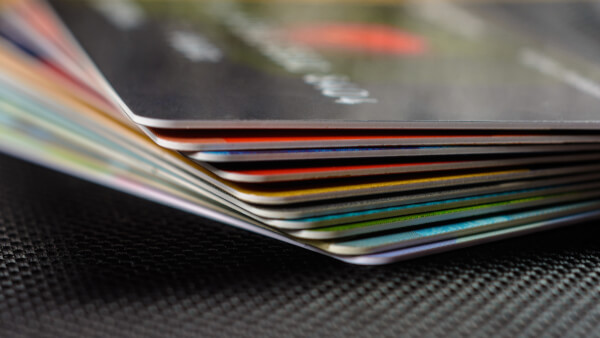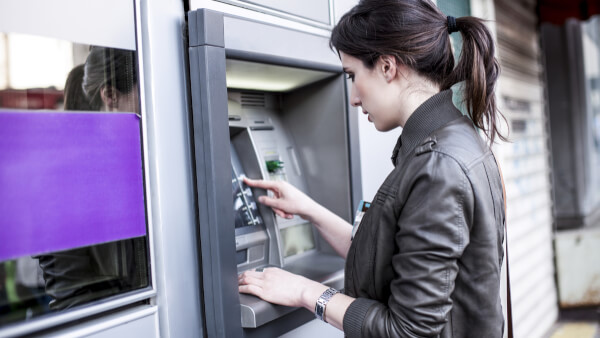Visa exchange rates: what are they and how can you benefit from them when paying from France?
Discover what lies behind the Visa rate and the interbank rate: what do they refer to? Are they advantageous? Are there alternatives?

Bank fees are one of the main concerns when travelling abroad. A common question arises: how can you pay less? For instance, you can prioritise card payments instead of making frequent withdrawals.
But sometimes, cash is essential — and heading to an ATM becomes unavoidable. That’s when commissions and exchange rate markups can quickly increase the total cost.
So, how can you reduce these fees? The answer is simple: use a money transfer service like Wise, which offers a multi-currency account with a debit card. You’ll benefit from currency conversion at the mid-market rate and lower fees on withdrawals and payments.
Before you travel, make sure your card allows international withdrawals and payments. Also, check your transaction limits and adjust them if needed.
To withdraw money outside France, you’ll need an international bank card — usually Visa or Mastercard. While there are small differences between the two, both are accepted almost everywhere worldwide.
Whatever the length of your stay, don’t forget to inform your bank before you leave. Otherwise, foreign withdrawals could be flagged as fraudulent and blocked.
“Bank fees” refer to the charges your bank applies for using its services.
When travelling, several types of fees may apply:
Additionally, when withdrawing abroad, local banks may charge their own fees on top of your bank’s commissions.
Each bank has its own pricing policy. The amount you’ll pay depends on:
For reference, here are detailed articles on withdrawal fees for different French banks:
When travelling in Europe, try to make withdrawals from ATMs belonging to your own bank or its partners. This helps you avoid extra network charges.
Outside the Eurozone, banks usually apply both fixed and variable fees per withdrawal. To reduce costs, limit your ATM visits — withdraw larger sums less often to minimise fixed charges.
Paying by card is often cheaper than withdrawing cash abroad.
For instance, at Caisse d’Epargne (Normandy), payments outside the Eurozone are charged 2.90% + €0.70 per transaction. A withdrawal for the same amount from another bank’s ATM would cost 2.90% + €3.23.¹
If you travel often, some banks offer international packages that include discounted withdrawals and payments abroad.
Another way to save abroad is to use a multi-currency account and card.
For example, Wise offers a Visa debit card linked to a multi-currency account.
With this setup, withdrawals and payments are processed at the mid-market rate and at much lower fees than most traditional banks.
Key advantages of a Wise multi-currency account:
Exchange rate markups are one of the biggest sources of hidden costs when spending or withdrawing abroad. Here’s how to avoid them.
Exchange rate fees refer to the extra cost you pay when converting one currency to another.
Banks and exchange bureaus usually offer a “marked-up” rate that’s less favourable than the market rate. This markup is how they earn money from the conversion.
To make sure you’re getting a fair deal, compare the rate offered by your provider with the mid-market rate using a currency converter.
When withdrawing from an ATM abroad, you might be offered the option to charge your withdrawal in euros instead of the local currency. This is called dynamic currency conversion.
Always decline this option. Choose to withdraw in the local currency to avoid paying an extra conversion fee on top of your bank’s withdrawal charges.
To manage your costs while travelling, prioritise card payments and limit small cash withdrawals. If you travel often, consider using a multi-currency account.
With the debit card linked to your Wise account, you can withdraw cash with minimal fees — and only convert the money you actually need.
Plus, you won’t need to worry about exchanging leftover currency at the end of your trip. A flexible and cost-effective solution!
More information
about the Wise card
Sources:
Last verified on October 10, 2025.
This article is a translation of the original article published in French and was translated within 365 days of publication. While the content has been translated for accessibility, the data and sources referenced have not been updated since the original publication date.
*Please see terms of use and product availability for your region or visit Wise fees and pricing for the most up to date pricing and fee information.
This publication is provided for general information purposes and does not constitute legal, tax or other professional advice from Wise Payments Limited or its subsidiaries and its affiliates, and it is not intended as a substitute for obtaining advice from a financial advisor or any other professional.
We make no representations, warranties or guarantees, whether expressed or implied, that the content in the publication is accurate, complete or up to date.

Discover what lies behind the Visa rate and the interbank rate: what do they refer to? Are they advantageous? Are there alternatives?

Everything you need to know when travelling abroad with your Banque Populaire card: what are the fees and charges? How to reduce commissions?

Discover how to reduce withdrawal fees with your Crédit Mutuel card internationally. Practical tips for saving money while traveling.

Multi-currency cards are ideal for people who travel frequently or live abroad. Discover how to use them to save money.

Discover all the commissions on your payments abroad with a BNP Paribas international card: in the euro zone or outside.

How to choose your bank card for travel abroad based on your needs, income and spending habits?